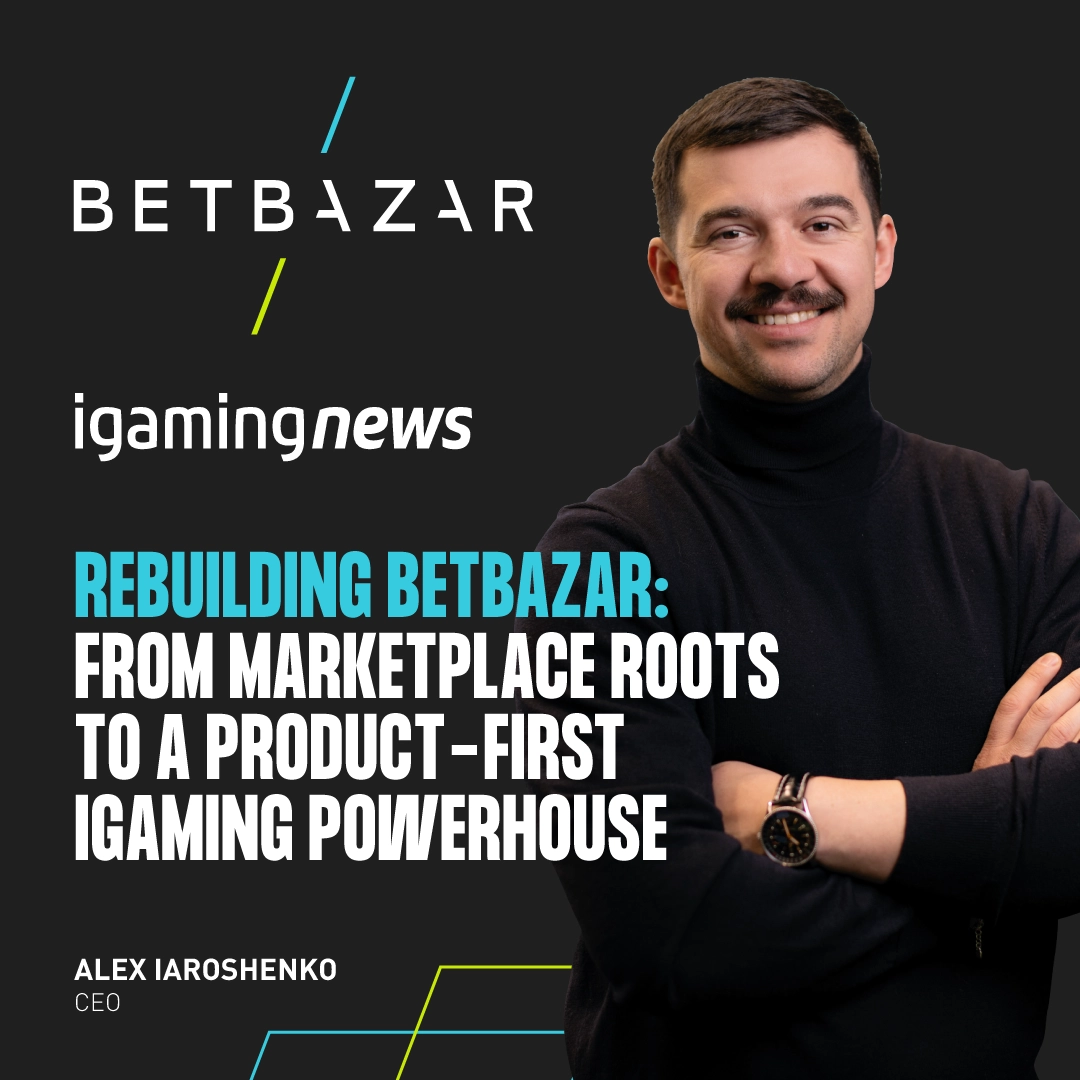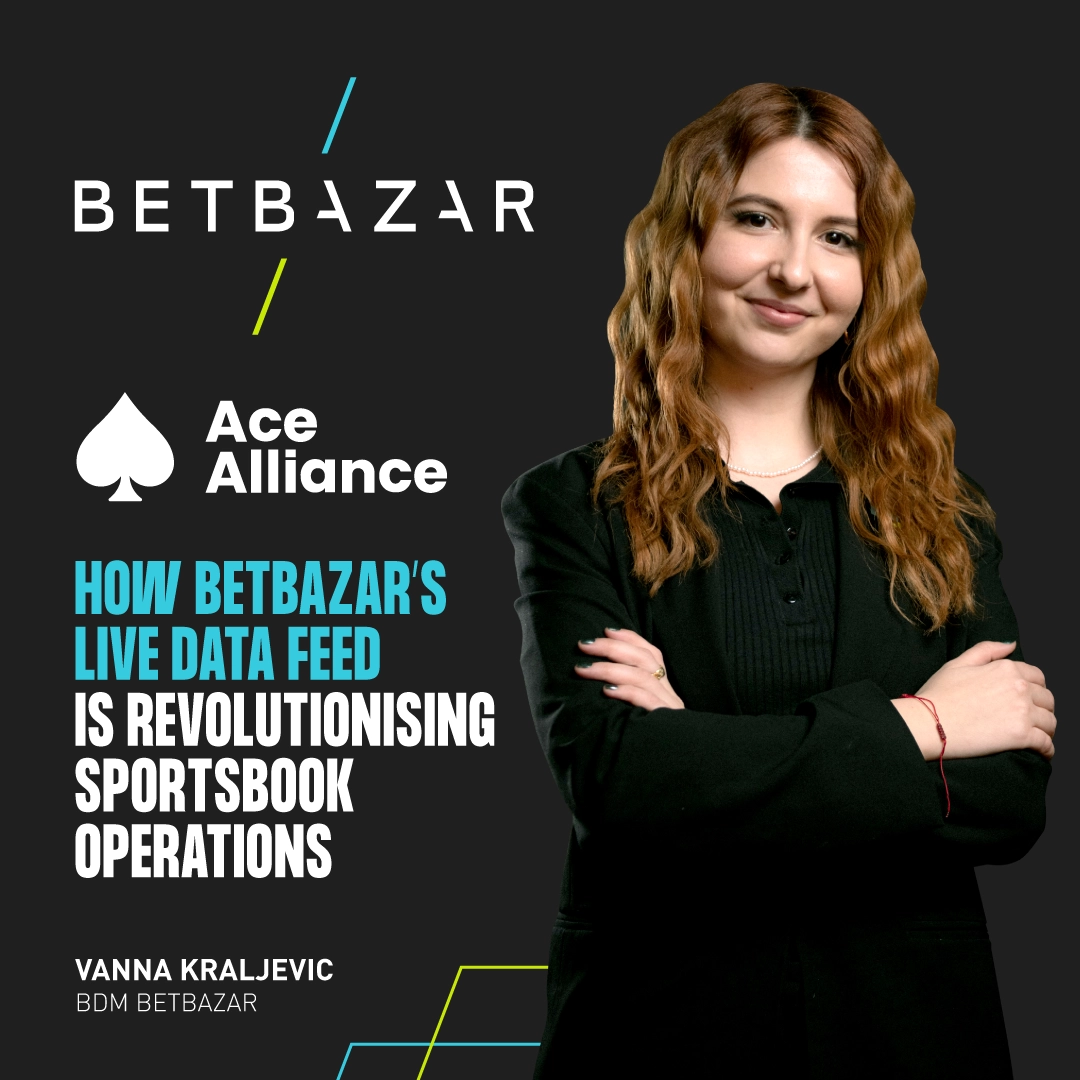
Esports betting on better grounds following 2023
SBC News
Experts View: Esports betting on better grounds following 2023 corrections
2023 has been a year of ups and downs for esports and betting. Esports is currently going through a market correction dubbed the ‘esports winter’, regulation has taken several important steps forward in big markets like the US and Brazil, there’s been an expansion of existing esports betting products and the rollout of new and deeper features, particularly microbetting and betbuilder.
There have been moments of promise and success in esports betting despite the turbulence in the broader esports sector. This esports roundtable will discuss what has worked well for the esports betting sector, and the important spaces to watch in 2024.
SBC News sat down with Max Sevostianov (Chief Operating Officer at BETBAZAR), Oliver Niner (Head of Sales at Pandascore) and Mikael Westerling (Chief Sales Officer & Co-Founder of GRID Esports) to discuss all things esports.
SBC: Despite the impact of the ‘esports winter’ on the broader sector, has esports betting proven resilient to the market correction? If so, how?
Max Sevostianov: I think the first thing to consider when discussing the “esports winter” is that we’ve only recently come out of a pandemic that saw all forms of electronic gaming receive a significant surge in interest. With this in mind, I’d say even with the market correction, esports has proven its resilience and is largely on track for where we’d expect it to be going into 2024.
If there’s one thing we learned from the previous year, it’s that a lot of companies are still finding their feet when it comes to esports. There’s still perhaps a bit of uncertainty as operators seek to understand their esports audience, as this involves investing a lot of money in an area that might not currently be driving a lot of revenue to their business.
That being said, there were plenty of good examples of sportsbooks who expanded their esports offering and posted good results in 2023. These businesses all understood that focusing on esports was not simply a short-term play, but rather an investment into a market that will certainly grow in future.
The fact is that classic sportsbook audiences are getting older and a new, younger generation that watches esports regularly is about to take their place. Games like CS:GO, DOTA2, LOL and Valorant all already have audiences in the millions and this is projected to grow in 2024, so there’s enough popularity to suggest the esports market will remain resilient to change and I think it’s a key area that operators need to be investing in.
Oliver Niner: It has proven to be resilient to the market correction and, if anything, we have seen demand for our esports data, odds and betting products rise in recent months. In fact, PandaScore has recently surpassed €1bn in terms of the total value of bets that have passed through our platform.
As the esports betting market grows, more tier-one operators are looking to get in on the action – we have recently partnered with the likes of Ladbrokes, BetFred, William Hill and Rivalry. This in turn is bringing more regulatory scrutiny to esports and esports betting as these companies have tighter requirements and processes, certainly when it comes to things like SLAs as well as integrity and safe gaming.
This is good for the esports industry. Regulation brings credibility and ensures the long-term sustainability of the sector. This comes at a time when some companies that came into the space and made a lot of noise have ultimately fallen by the wayside. This has done a little bit of reputation damage, but we are pleased to see that the true power players understand the potential of esports betting and are now embracing it and partnering with companies such as PandaScore to bring engaging and entertaining experiences to players. Where tier ones go, others follow, and the only way for esports betting is up from here.
Mikael Westerling: The notion of an ‘esports winter’ tends to be overstated. The industry has been going through a transformation, pressured by market circumstances but also natural for a still, very young sector. There’s enough knowledge and experience in the esports industry now to review the business models – explore new revenue streams, review the format of the tournaments, think about scalability. From GRID Esports’ standpoint, we haven’t experienced the brunt of this’ esports winter’.
In the context of esports betting, the growing recognition of official data and understanding of the role of the rights holders drives interest from the odds providers, and bookmakers in utilizing data coming from the official sources. This resulted in significant industry innovations in the space of esports betting including the Inspired’s first virtual CS2 esports product powered by GRID official data.
Together with the great annual results of the companies like Rivalry, it’s safe to say that the companies that bet on the innovation and customization of the user experience in their esports betting products have maintained resilience.
Sergii Mishchenko: The phenomenon known as the “esports winter” is a relatively logical, organic stage in the market’s life cycle. Since the early 2010s, the industry has been undergoing a period of intense growth and change, as we have seen recently, was inevitable. It’s sure to benefit the industry and help players in the esports market reach new professional heights in terms of managing their organizations, dealing with the media, and, of course, working with different partners.
Of course, the “esports winter” has affected everybody operating in the esports industry, but the nature of its effects has varied greatly. According to an investigation titled “Esports Insider Payments and the Monetization of Esports”, carried out among various esports organizations (teams) and tournament operators in 2022, 89% of companies get their revenue from sponsors, while only 48% make money from merch and ticket sales. This means that if major sponsors jump ship, these companies’ revenue will take the hit. However, if they play their cards right in this period, betting companies could open up new opportunities for themselves.
It’s important to understand that this recession in the market is not due to, nor will it lead to, a reduction in the esports audience numbers. Fans are still watching tournaments in their droves. While certain disciplines, such as Dota 2, may have quietened down somewhat, new games are arriving on the scene and bringing in new viewers. For example, peak viewership of Valorant streams has more than doubled since the first tournaments back in 2022. Mobile Legends, which was released back in 2016, has seen its peak viewership increase fivefold in the last 3-4 years.
Here at GG.BET, we see this as an opportunity to develop our markets and create new offers for users. And this approach is working: in 2023, the total sum of bets placed on esports on the GG.BET platform increased by 27% compared to 2022. Another way to create growth during a recession is through brand communication based around a real impact on the community. We work closely with industry big hitters, organizing unique events, such as GG.Gathering for NAVI fans in Rio, as well as making online connections, like integrating the V.Hive blockchain app from Team Vitality.
If a betting company can respond appropriately to the needs of its audience and make the most of a partnership, the risk of stagnation can be eliminated.
SBC: What are the biggest lessons that you and your organisation have learned from 2023?
Oliver Niner: We learned what success looks like for our Bet Builder product, which has gone from strength to strength over the last 12 months. It allows our partners to deliver truly personalised esports betting experiences to players and has been a runaway success. We have also evolved our approach to the US, a market where we see tremendous untapped potential for operators to offer quality esports betting experiences to players in regulated states. We have also improved how we interface with platforms and resellers, opening the door to more partnerships and operator integrations.
The need for our organisation to be nimble was reinforced by game changes – we knew CS2 was coming, but we didn’t know when. This meant we had to have a plan in place and be ready to transition the moment the game went live. Being agile also allowed us to navigate fluidity in the market, such as the structure changes for Dota2. Esports is a fast-moving organism, and if 2023 taught us anything it was the need to be flexible and innovative to not only keep pace with changes but to maximise the opportunities they present.
Max Sevostianov: I think the first big lesson from 2023 is that both operators and their audiences still need to be educated on what esports are and how they work. It’s important not to just think of esports as a means of increasing your existing revenue, but rather as a way of adding new revenue that’s derived from a completely different audience. An operator might, for example, say “I already have an audience for classic football – what will happen with them if I add FIFA?” but it’s not a question of one impacting the other; it’s about how you fill the gaps in your line-up.
Another takeaway from 2023 has been the importance of innovation. If you want to get the most from your esports audience, you have to provide more than just data. You need widgets that improve the user experience and qualified traders that really know how the markets work. We also saw an increased demand for official video from esports tournaments and I believe in 2024, this will become more readily available from the game organisers. This will further polish the product and make it more attractive, while also creating potential microbetting possibilities.
Sergii Mishchenko: Taking the initiative in shaping new experiences and values for the community always pay dividends, and this is a rule that we set in stone for ourselves in 2023.
We’ve been working on our platform to create the best possible esports betting experience. In 2023, GG.BET turned users’ accounts into gaming avatars and launched GG.Leagues, through which bettors discover new opportunities on the platform. We are continuing to add this feature to all platforms operating under the GG.BET brand.
One of the most important initiatives, however, lies outside the bounds of the product itself. In the summer of 2023, GG.BET organized a show match between two Counter-Strike titans – Team Vitality and NAVI. This was an unforgettable clash played by the custom rules, where we mixed up the rosters from round to round and gave the players a chance to show off their skills in ways they hadn’t before. Without the pressure to win a tournament hanging over them, they could relax and have fun, which provided the fans with an exciting and entertaining spectacle. In total, the show match drew in over 1 million views, with peak viewership reaching 75,000 – a figure comparable with the final of a tournament like the Katowice. We also let viewers place bets on the event. And we weren’t the only bookmaker to offer markets on the Match of LeGGends. This shows how one betting company’s initiative can create a completely new event.
SBC: Microbetting has been a strong talking point in 2023, has it been effective when deployed and what can be done to continue improving it as a product?
Max Sevostianov: Microbetting is an area that we’ve really been focusing on lately and we already have a couple of partners who are working in this field. I believe it’s proven to be very effective when it comes to live events, as people generally don’t have a lot of time these days and are attracted to markets that offer them instant results.
Microbetting provides this by enabling them to place fast, simple bets on things like the result of the next play or who will win the next point – both of which can be resolved in a matter of seconds. In terms of how we improve it, technological advancements will be key.
We need to analyse player behaviour and use our findings to enhance the experience, creating a more engaging product that has greater integration with live esports events. Of course, using official data can help us create more interesting designs and UI features while also steering focus to the microbetting markets that prove most popular.
Oliver Niner: We already offer micro betting for specific League of Legends tournaments. As with traditional sports betting, micro betting is the format that players want to engage with the most as it provides instant bet opportunities and settlement that brings unrivalled anticipation and excitement.
Our micro betting product is live with operator PixelBet, but it is still early days, and we will be spending 2024 enhancing and improving the experience it offers to players. The challenge for esports is that micro betting requires real-time data to ensure the integrity of the markets and bets being offered, but there is often a deliberate delay between the stream and the data. That being said, the opportunity here really is significant and will help operators unlock the full potential of esports betting so it’s very much a priority for us.
Mikael Westerling: Microbetting has emerged as a defining trend in esports betting, highly aligned with the behaviours and needs of the unique target group that esports fans are. Its success is largely contingent on the use of official data. The depth and immediacy of data sourced directly from game servers is unmatched by any unofficial counterparts.
Our direct collaborations with partners like Ubisoft and Riot Games enable us to capture a comprehensive array of events in even the most complex game genres like Battle Royale or MOBA. This rich data stream allows operators to offer bets on highly specific in-game actions, enhancing the betting experience for the esports fans. The continued refinement of microbetting hinges on leveraging this quality of data to create more nuanced betting options.
Sergii Mishchenko: In esports, microbetting offers a lot of possibilities for users, with a huge range of different disciplines and a wide variety of options. GG.BET has been working on microbetting for a long time – it was back in 2022 that we added a whole new pack of markets to the platform, including “round winner”, “total kills in round” and “total deaths in round”. For these bets, users have just a few seconds to make their decisions, and just a minute later, they find out the outcome.
The company continued to develop microbetting in 2023 with the addition of a range of markets on individual player results for Counter-Strike, such as “total kills”. Users could then bet on the number of kills to be scored in a two-minute round by either an individual player or a team. During the 2023 Blast Paris Major, the “total kills by player” market rose to become the 7th most popular of over 800 markets available for live betting.
Working on microbetting requires a lot of creativity. The bookmaker needs to look at the game from a fan’s point of view. For example, they need to think about how a group of friends might watch a Counter-Strike match and argue about whether a player will use a Molotov cocktail, or where the bomb will be planted. The idea for these markets can only come from a team that includes esports fans, which is why any bookmaker that wants to develop microbetting for similar disciplines needs to find some gaming experts.
There’s also a technical aspect which risks standing in the way of microbetting – stream delay. Due to technical limitations, the bettor might end up watching the game with a delay of several minutes, leaving them unable to make rapid decisions and make the most of the side markets that characterize microbetting. When tournament organizers and streaming studios work together more closely, these limitations can be overcome, enabling viewers to place bets in real time and giving microbetting an extra boost. Until this happens, however, bookmakers will have to account for the delay factor when creating their live markets.
SBC: What is going to matter most to betting operators looking to enter or expand their esports segment in 2024?
Oliver Niner: The quality of the esports betting experience they can offer to players will be paramount. There is no doubt that esports betting has the potential to be a significant vertical in its own right, but to achieve this potential, operators must be able to offer authentic, compelling betting experiences that add value to a punter’s experience of watching the esports contest. This is why we will focus on improving the performance of our data and odds, as well as our trading models and the betting products we offer. This is ultimately what drives the highest margins for operators.
We will also be increasing the number of esports we cover and will enhance our markets so that operators can offer the comprehensive esports betting experience they need to deliver an experience that exceeds bettor expectations.
Max Sevostianov: Operators should focus on really getting to know their esports audience, which will typically be younger and more digitally-oriented than the traditional sports bettors that they’re used to dealing with. It’s important to remember that for these customers, in most cases the desire to bet is secondary to the competition itself.
Esports fans are usually incredibly passionate about the games they love and often play them in a non-professional capacity themselves, so their motivation for betting often comes from using their knowledge to beat the market. The first thing operators should do is analyse their existing player base to see what percentage is in the 25-40 age bracket. If it’s a significant amount, the chances are some share of this audience will be interested in esports products. Even if it’s not, adding esports to their line-up will safeguard operators for when this new generation of bettors does emerge.
While their revenue from esports may not compare to what they make on regular sports betting initially, over time they’ll be able to increase their turnover, improve their margin and attract a new audience that will stop them from being locked out from the betting industry because they don’t offer it all.
Mikael Westerling: In 2024, several key factors will hold paramount importance for betting operators seeking to enter or expand their presence in the esports segment. The key among these is the utilization of official data, which not only enhances the betting experience with specific in-game bets but also builds trust and solidifies partnerships with intellectual property owners.
Customization is another critical element, allowing for tailored betting experiences that resonate with individual preferences that can come in the form of innovative solutions but also investing in localized content suitable for the targeted markets. Esports is a general term covering a large portfolio of diversified game titles, varying in popularity across the regions. It’s important to select an esports data partner who understands these differences and provides only official data.
The rise of live esports betting also calls for investment in real-time betting solutions to boost user engagement in the moment of the biggest excitement during the live games. Furthermore, integrating gamification into betting offerings will add an element of interactivity and enjoyment esports fans enjoy thanks to their in-game habits. For operators aiming to thrive in the evolving esports betting landscape, focusing on these areas – official data, customization, live betting, and gamification – will be essential.
Sergii Mishchenko: Esports betting is quite particular due to the nature of esports itself. New disciplines appear, and each one is unique in terms of the team line-ups, the rules, and the opportunities it offers for new markets. Existing disciplines are also constantly changing. In 2023 alone, fundamental changes were made to two of the biggest games: CS:GO was replaced by CS2, which came with some notable changes to the rules of the original, and in Dota 2, the game map grew by 40%. For comparison, in more “traditional” sports, the rules might remain unchanged for centuries. To remain successful, a betting company must accept the turbulence of the esports industry, keep its finger on the pulse of any changes, and find the opportunities that come along with them.
It is important to establish synergy between a product which offers an up-to-date list of markets with a clear interface, marketing that focuses on users’ real needs, and branded activities that bring value to users and the industry as a whole. Of course, we mustn’t forget about high-quality trading grounded in official, rapidly updated data. Esports betting is a product that requires flexibility and decisiveness, but with the right approach, it can become the flagship.
Betbazar is a global entertainment ecosystem that connects providers with their respective operators and platforms. We scout and validate products for bookmakers, and work as an external sales office for suppliers. Our mission is to help each sportsbook to find its perfect product.
About the Role
We are looking for a charismatic Business Development Manager with deep experience in the sports or esports industry and strong communication skills. The ideal candidate is proactive and thrives in a fast-paced, data-driven environment.
This is a unique opportunity to join a stable and forward-thinking company where you’ll have access to powerful tools, top industry contacts, and a clear path for growth.
Key Responsibilities
- Identify, approach, and close business deals.
- Leverage your network and CRM systems to drive sales and build long-term client relationships.
- Communicate with decision-makers at top-tier companies.
- Lead negotiations.
- Collaborate closely with internal teams and contribute to strategic growth.
- Maintain accountability for pipeline management and performance tracking.
- Stay up-to-date with industry trends and use data to inform your strategy.
Must-Have Qualifications
- 3+ years of proven success in sports or esports business development or sales.
- Fluent in English (Spanish and/or Portuguese are strong advantages).
- Experience using CRM systems and working with large data sets.
- Strong negotiation and networking skills.
- Contacts within top companies in the industry.
- Excellent communication, time management, and problem-solving skills.
- Analytical mindset with the ability to make data-driven decisions.
- Resilience under pressure and a strong team spirit.
Preferred Qualifications
- Based in Europe
- Experience in a single company for more than 1.5 years
- Motivated by success
- Confident personality with a proactive attitude
What We Offer
- Stable income with the potential for high earnings through bonuses and performance-based rewards.
- Access to powerful CRM platforms, professional tools, and industry databases.
- Subscriptions, resources, and the opportunity to attend global conferences and training.
- Company-sponsored participation in top industry conferences — travel, tickets, and arrangements are handled by us.
- Work with a data-driven company that values innovation and growth.
- Supportive, high-performing team culture with a strong focus on professional development.
Work Conditions
- Full-time
- Remote or hybrid format available
- Contract-based engagement
- Performance-based bonuses
Ready to Join a Winning Team?
If you’re looking for a career-defining opportunity in a thriving sector, with all the tools, contacts, and support you need to succeed — apply now and let’s talk.
- Minimal 1 year experience as B2B Sales Manager, Business Development Manager or similar
- Proven experience in leads generation, negotiations and new customer onboarding
- Good understanding of gaming products, such as sportsbook, slots and live casino
- Fluent written and oral English
Will be a plus:
- Personal networking background
- Other gaming verticals experience
- Understanding of KYC instruments and marketing tools (including affiliates)
- Additional languages (DE, ES, CN, GR, PL)
We offer:
- Competitive salary and bonus system
- Self-development possibilities (public speaking, business writing, English speaking club)
- Cosy and productive environment in downtown Kyiv
- Flexible office hours
- Business trips for gaming-related exhibitions and conferences





